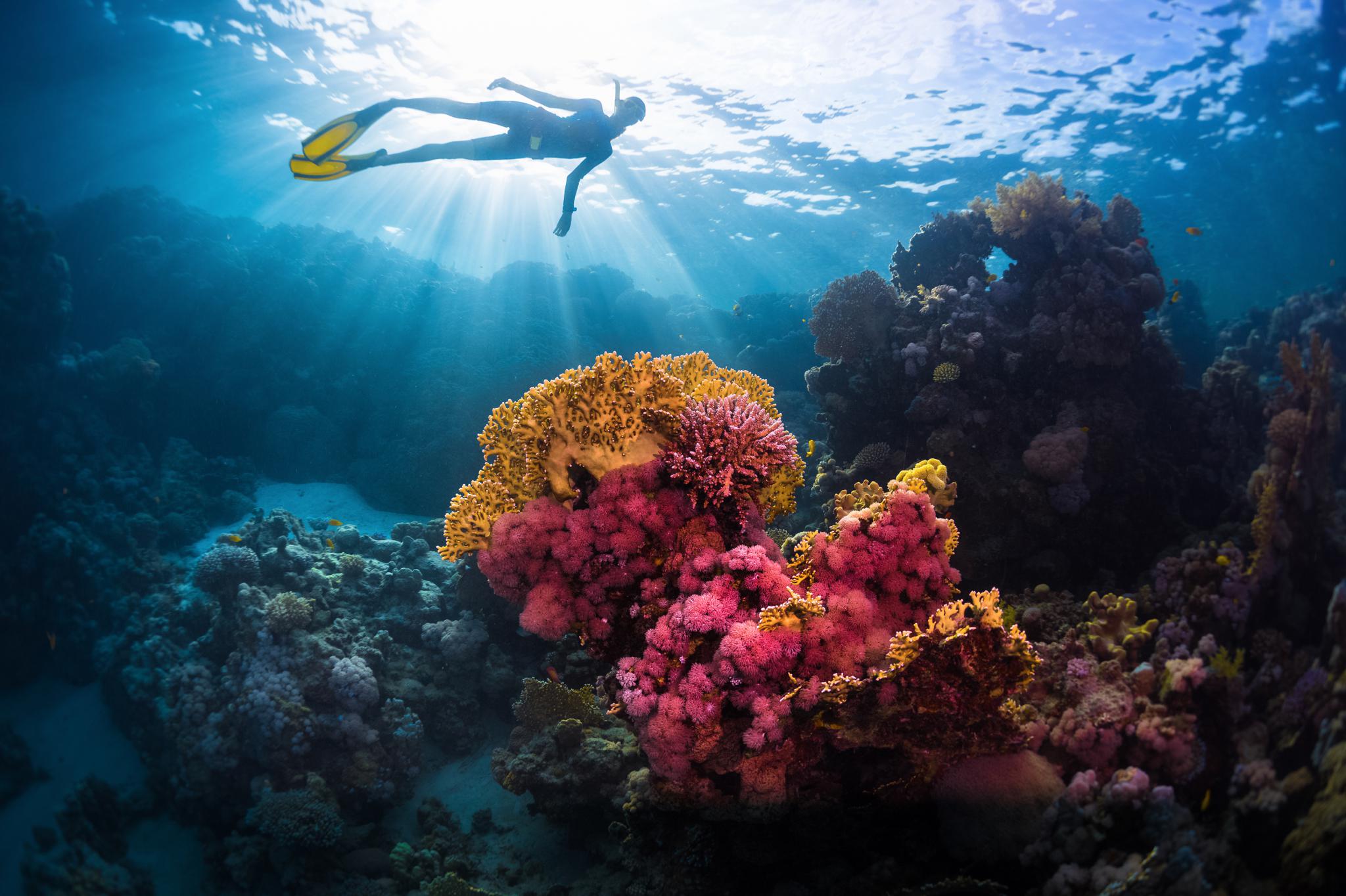
A research group has found that corals in the Maldives are showing some resilience, adaptability and even recovery from climate change effects
Biosphere Expeditions, the Marine Conservation Society, Reef Check Maldives and local Maldives environmental group, Save the Beach Maldives has found, against expectations, that corals are showing some resilience, adaptability and even recovery from climate change effects. The collective group recently returned from a 250 kilometre expedition around the central Maldives, the ninth annual survey of its kind sine 2010.
Expedition scientist and co-author of the paper showing the group’s findings, Dr. Jean-Luc Solandt, said he and his team of citizen scientists found many baby (less than 1 year) and young corals (1-3 years), as well as different species of corals growing vigorously at sites that we expected to be dead or dying: “It was surprising and encouraging to see a greater diversity of corals pushing through from the dead layer below. It seems nature is fighting back with a coral diversity explosion. We have seen resilience, adaptability and recovery this year,” Solandt explained.
The encouraging findings come after two years of little coral recovery in the region, following the 2016 coral bleaching event that killed off large swathes of reefs. One of the outstanding sites regularly visited by the annual Biosphere Expeditions surveys, ‘Rasdhoo Madivaru’, was also recently declared a Marine Protected Area, being both resilient to the worst bleaching effects, and harbouring large megafauna such as sharks, manta rays, turtles and Napoleon wrasse. “Our expeditions have highlighted this site for the past nine years, as being of extraordinary biodiversity value,” concluded Solandt.
However, Dr. Solandt added it’s not all plain sailing for the paradisiacal destination’s marine ecosystem. “Many reefs are still very badly affected and some have died altogether. And another temperature spike would kill many of the new corals we’ve seen. Also, some small corals that had settled on the reef in the last year, which we thought were resistant to bleaching, were now bleached, but the larger ones seem okay. Finally, the background temperature is still ‘hot’ at the bleaching threshold of 30 degrees celsius in very shallow water.”
Hussein Zahir, head of LaMer, one of the expedition’s local partner organisations, added that the recent change in government in the Maldives is another cause for optimism, noting that the government has indicated that it “understands the close link between oceans, climate change and the wellbeing of communities. This is a good start, as is the establishment of a National Research Institute that includes environment, health and social issues – a sort of think-tank and an infrastructure for science-based knowledge and understanding of the issue. And apparently the income from the Green Tax that has been levied on the tourism sector, will now be spent exclusively on the environment,” he said.
Further surveys will be carried out by local organisations Save the Beach Maldives and Reef Check Maldives, who will also train more local divers to survey their own reefs in the future and set up more community-based reef conservation efforts. The Biosphere Expeditions annual survey will return to the Maldives in August next year.


